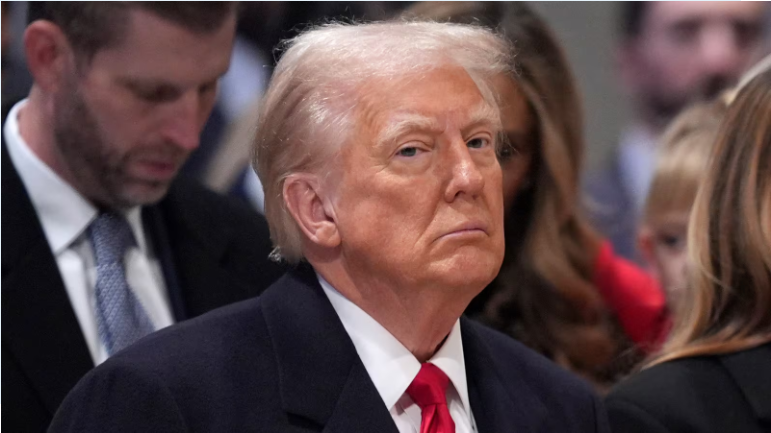 In a bold statement delivered at the World Economic Forum in Davos, Switzerland, former U.S. President Donald Trump asserted that the United States no longer needs Canadian oil, gas, automobiles, or lumber to fuel its economic engine. The remarks, part of his broader message emphasizing American energy independence and economic self-sufficiency, drew mixed reactions from global leaders and Canadian officials.
In a bold statement delivered at the World Economic Forum in Davos, Switzerland, former U.S. President Donald Trump asserted that the United States no longer needs Canadian oil, gas, automobiles, or lumber to fuel its economic engine. The remarks, part of his broader message emphasizing American energy independence and economic self-sufficiency, drew mixed reactions from global leaders and Canadian officials.
Trump’s speech centered on his administration’s efforts to achieve what he termed unprecedented energy dominance for the United States, citing record-high domestic oil and gas production levels. We have become the number one producer of oil and natural gas in the world, Trump stated. We don’t need energy from anyone else, especially not from Canada.
The comments were seen as a direct rebuke to Canada, a long-standing trading partner and supplier of critical natural resources to the U.S. Trump also took aim at Canada’s auto and lumber industries, claiming that American manufacturing and forestry sectors are thriving without reliance on imports. Our workers are building the best cars, harvesting the best timber, and we’re doing it all here at home, he said.
The speech elicited a swift response from Canadian officials, who pointed to the deep economic ties between the two nations and the importance of trade for both economies. Deputy Prime Minister Chrystia Freeland countered Trump’s assertions, stating, The U.S. and Canada have a long history of economic partnership, and our interconnected industries benefit both sides of the border. The idea that the U.S. can simply walk away from Canadian trade is unrealistic.
Economists and industry leaders have also weighed in, noting that the U.S. heavily relies on Canadian imports for key sectors. Canada is the largest foreign supplier of crude oil to the U.S., providing more than 50% of its imported oil. Similarly, the automotive and lumber industries benefit from the integrated supply chains that span the border.
Trump’s comments come at a time when the U.S.-Canada trade relationship has faced significant strain, including disputes over tariffs on Canadian aluminum, steel, and softwood lumber. These disputes have sparked concerns about the future of cross-border trade, particularly in the context of the United States-Mexico-Canada Agreement (USMCA), which was designed to modernize and strengthen economic ties between the three nations.
Critics argue that Trump’s rhetoric overlooks the complexities of the bilateral trade relationship and the potential fallout of severing economic ties with Canada. Energy independence is one thing, but the U.S. and Canada are deeply integrated economies. Breaking those links would have consequences for both countries, said an international trade expert.
Supporters of Trump’s position, however, view his remarks as part of a broader strategy to prioritize American industries and reduce reliance on foreign imports. This is about putting America first, said one of Trump’s economic advisors.
As Trump’s speech continues to reverberate across political and economic circles, the future of U.S.-Canada trade remains uncertain. While Trump’s declaration may resonate with his base, the realities of cross-border commerce suggest that the relationship between the two nations is far from dispensable.

